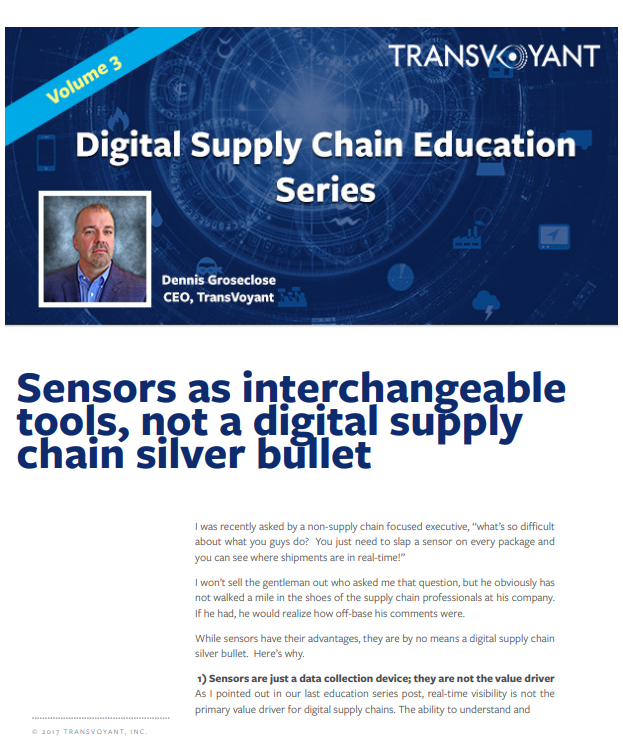
Digital Supply Chain Education Series: Volume 3
Sensors as Interchangeable Tools, not a Digital Supply Chain Silver Bullet.
Enabling an IoT-agnostic, digital supply chain platform can be complicated. What should you focus on?
-
Have a specific, well-defined use case for what data the sensor will collect/provide.
-
Understand the limitations - sensors are battery-powered and each country that your shipments travel through has different certifications and requirements for sensors.
-
The market is quite fragmented and rapidly evolving; in order to connect sensors to your digital supply chain, pick a platform with IoT capabilities that can easily handle and swap out different types of sensor/IoT providers.
